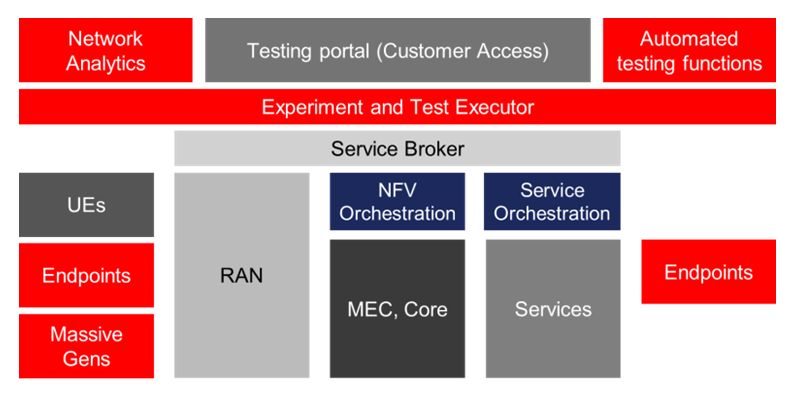5G-VINNI: 5G Verticals INNovation Infrastructure
5G-VINNI project will accelerate the uptake of 5G in Europe by providing an end-to-end (E2E) facility that validates the performance of new 5G technologies by operating trials of advanced vertical sector services.
The RSTI group of Universidad Politécnica de Madrid participates in the last phase of 5G-VINNI European project (H2020-ICT-2018-20/H2020-ICT-2018-1) as Third Party of Telefonica I+D staring from November 2020 till the end of the project.
5G-VINNI project will accelerate the uptake of 5G in Europe by providing an end-to-end (E2E) facility that validates the performance of new 5G technologies by operating trials of advanced vertical sector services.
The 5G-VINNI concept is to develop an (E2E 5G facility that can be used to first demonstrate the practical implementation of infrastructure to support the key 5G KPIs, and then to allow vertical industries to test and validate specific applications that are dependent upon those KPIs. However, 5G-VINNI is not intended to be simply a group of interconnected test facility sites – it is underpinned by principles that will allow for highly dynamic and flexible network architectures, service deployment and testing, that will create new technical and commercial service deployment models. These will in turn drive inter-facility interconnection to enable virtualized functions from the network and service layer to be called upon from any facility, with complete location agnosticism – a truly cloud-based network instantiation that has no functional boundaries, implemented across multiple facility sites.

RSTI group will contribute to the consortium with the development of mechanisms for orchestrating the generation of synthetic traffic in the 5G core, a feature critical for many experiments, to guarantee their reproducibility along its three main axes: corroboration (to avoid idiosyncratic results), transparency (to prevent biases) and robustness (to support consistent changes). In order to get the target a 5G Traffic Generator will be developed over selected used cases including signaling and user data traffic.

This project has received funding from the European Union’s Horizon 2020 research and innovation programme under Grant Agreement No. 815279.


